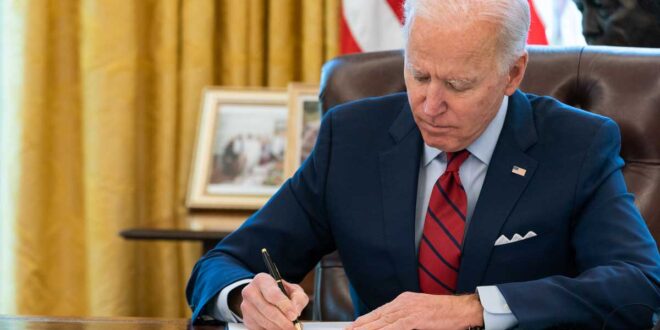Zubair Ali
Amid the growing US-China rivalry for the supremacy, the geopolitics has been altered to gain favour for oneself and outsmart rival. This time the battlefield is Indo-Pacific region. Since US has forged AUKUS, the regional countries are concerned over this move. AUKUS is a defence agreement- comprising Australia, UK, and US- which is aimed to maintain a free and open Indo-Pacific with nuclear-powered submarines potential on patrol and the deal enables Australia to acquire nuclear-powered submarines.
China retorted it and termed it “Cold War Mentally” and claimed such partnership is anti-china clique. They do not have any definite purpose behind this agreement but to contain China’s rise. Signing such deals will destablise the peace and trigger an arm race in the region. She claimed that they, in order to contain China’s growth, are throwing military net around it in waterway like the South China Sea and attempting to halt China’s economic development.
Also, Malaysia and Indonesia fuss with this move and are of the view that this will speed up arm race and aggression in the region; North Korea chastised this maneuver claiming it as undesirable and dangerous and stated that it will underscore North Korea to continue developing its arsenals of atomic weapons; Some Russian Diplomatic officials dubbed it an step to accelerate arm race and undermine the Nuclear Non-Proliferation Treaty. Besides regional countries, France was also ticked off with AUKUS, due to cancellation of previously signed deal of $66 billion between France and Australia for conventional submarines, which will cost France jobs and revenue.
On the contrary, India and Japan, the antagonists of China and member of an anti-china pact namely Quadrilateral Security Dialogue (also known as QUAD), have warmly welcomed this measure. But in reality, the AUKUS is nothing more than a potential hazard for the region, in which Washington is adopting Asian versus Asian strategy to pit them fight to contain China’s rise and sell its weaponry. However, the results of this gathering storm can be far beyond the thoughts of political scientists and eagerly participating Australia.
The first unanticipated loss of this pact is the deteriorating ties of Australia with France. Reportedly, this in consequence has kept Australia away to finalise a free trade agreement with the European Union. Apart from this, Scott Morison’s, Australian Prime Minister, planned visit to Indonesia has been cancelled, because Indonesian President Joko Widodo is no longer available. Australia has been victimised in the US-China rivalry which has its first consequence in the loss of robust ties with France and Indonesia.
Apart, Since the Australia had close economic relation with China, Australian Trade Union has opposed this maneuver; It has shamed AUKUS deal and insisted they do not want war with China and warned of dangers to country on multiple fronts. Also, the Maritime Union of Australia has opposed this deal and verbalised that Prime Minister should not engineer such secret deals instead supply vaccines and help lockdown affected.
Moreover, a China state-owned newspaper, Global Times, warned arm race and grimly stated that Australian soldiers were likely to be first to die if China counterattacks.
To sum this deal, without having any challenge to Australia, buying nuclear-powered submarines is a potential step toward endangering and victimising itself for nothing but US gain.
Apart from this alliance, US have Quad and Five Eyes to focus the China and keep China’s power from spreading. Quad is consisting of US, Japan, India and Australia. The main purposes of this alliance were economic and security interests that span the Pacific and Indian oceans. Quad was actually tailored for tsunami relief efforts, which lay dormant until 2017. Later, it was revived by Trump to challenge China from every front. And, Five Eyes is pertaining to US, UK, Canada, Australia and New Zealand.
All the Quad members have poor diplomatic relations or even face-off with China, which strengthens US position in the region and collectively they are sparing no effort to undermine China’s rise.
On September 24, Quad had an in-person summit, in which they had discussed vaccine export, trade, and technology. They also said, “We stand for the rule of law freedom of navigation and overflight, peaceful resolution of disputes, democratic values, and territorial integrity of states.” besides this the main purpose behind the meeting was to opt strategy to counter China.
In addition to this, Biden administration had made clear that it desires to forge a united front of democracies to deal with China across the board- on security, trade, technology, and human rights. Actually, the desire is to make alliance of democracies to defeat China. All the maneuvers US is taking are not to safeguard any human right but to contain China’s economic influence and military power.
However, Chinese spokesman, Mr. Lijian said: “Faced with the common challenge of fighting the epidemic and economic recovery, the people of the Asia-Pacific region need growth and employment not submarines and gunpowder.” He further vocalized, “Individual powers have repeatedly dispatched military aircrafts and warships to South China Sea that spark trouble and deliberately provoke conflicts on maritime issues. And, Chinese determination to safeguard national and territorial sovereignty, maritime rights and interest is unwavering, and all will continue to properly handle differences with the countries connected through consultation and negotiations.” This statement clarifies that China does not want war rather prefers consultations, but it is not necessary that it is the reality; China has already focused military power. If both rivals escalate military power, then danger will loom and exacerbate already worsened diplomatic ties.
Furthermore, Japan is another active member of Quad, who is ardently participating in the US-China rivalry. However, the participation can be equally annihilatory for Japan.
Li haidong, a professor at the Institute of International relations of China Foreign Affairs University, viewed that Japan has been leaving no stone unturned to use the anti-China clique to gain an upper hand in its territorial conflicts with China, Russia and on the Korean peninsula issue.
Further, Chinese analysts also warned Japan, India and Australia that if they went too far in following the US strategy of containing China, they will become cannon fodder as China will steadily safeguard its interests.
Additionally, China’s rocketing influence and military power deters America. If China finds any danger from US, China’s missile arsenal could annihilate American bases in Asia during opening hours. Equally gruesome for US is China’s rapidly growing economic reach, which has expanded state-owned companies buy up strategic assets such as ports around the globe that could be harnessed in times of war.
To encapsulate, this ebbing situation can destablise peace in the region. Both the powers should repair their completely dysfunctional relationship and evade forging blocs in the region. If the region divides in the blocs, the regional as well as global peace will be at risk.
 Geostrategic Media Political Commentary, Analysis, Security, Defense
Geostrategic Media Political Commentary, Analysis, Security, Defense





